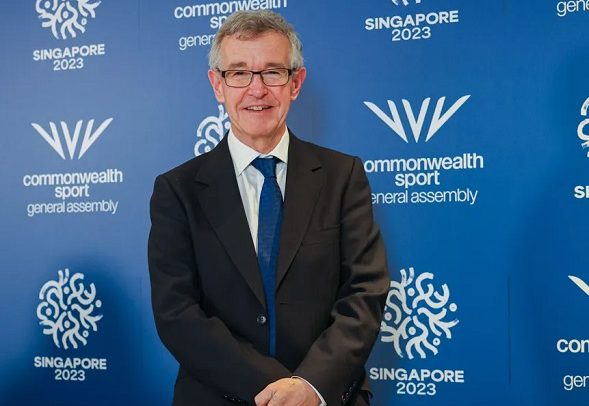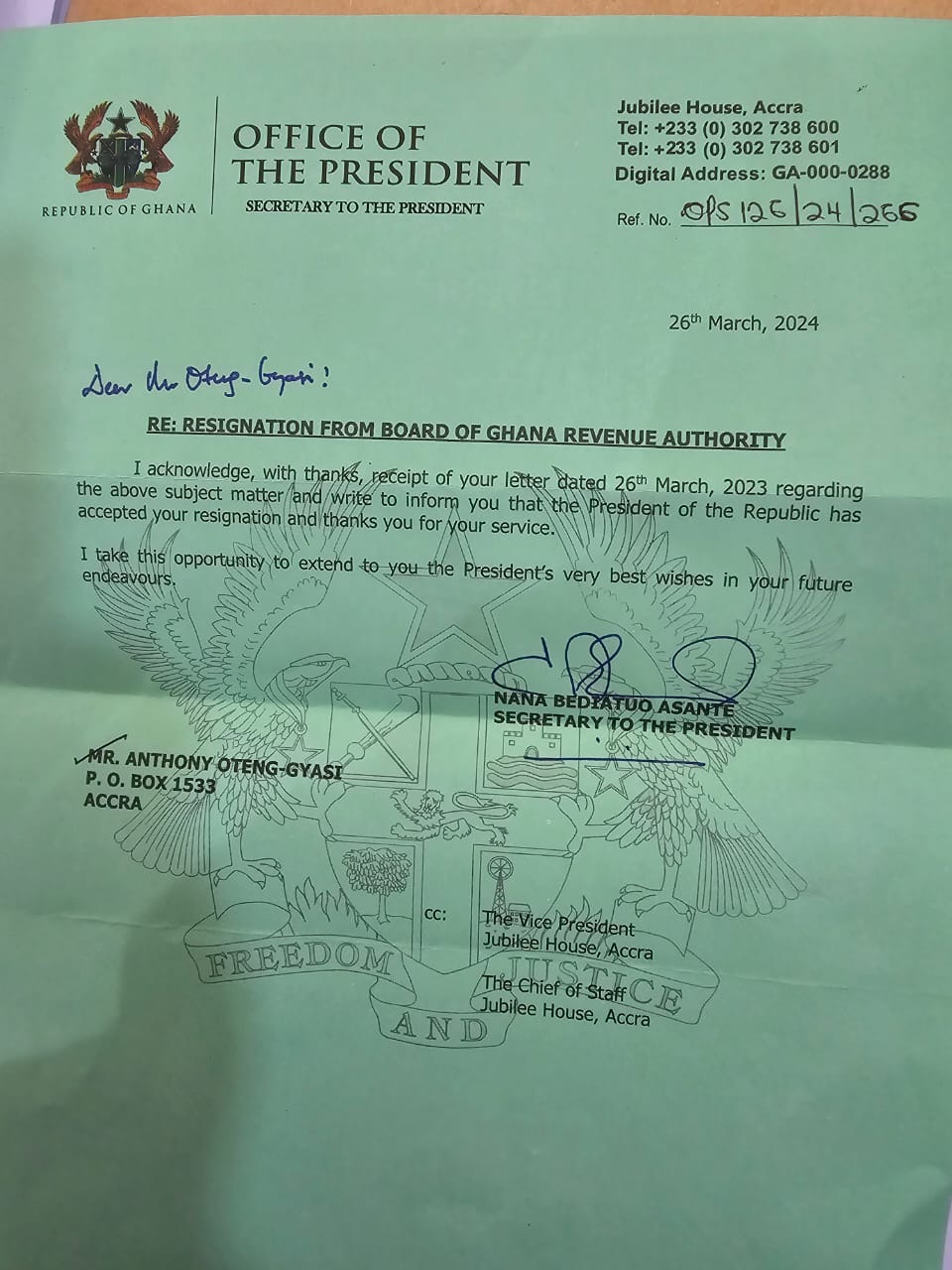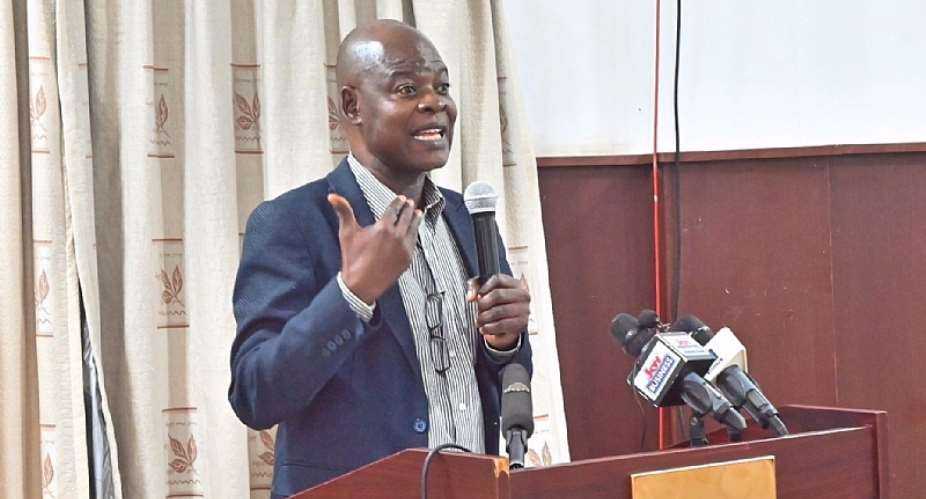
By Ebenezer Chike Adjei NJOKU
The Chairman-Commonwealth Enterprise and Investment Council (CWEIC), Lord Jonathan Peter Marland, has described the Commonwealth as Ghana’s most reliable partner during a period characterised by mounting global trade uncertainty – citing shared legal frameworks, common language and lower transaction costs as distinct advantages for businesses seeking stability.
In an interaction with B&FT during a visit to Accra this week, Lord Marland said the imposition of tariffs and trade restrictions in recent months, particularly by the United States, has unsettled traditional markets and forced countries to reassess existing arrangements.
“Commonwealth trade is proven to be more competitive, price-wise and terms-wise, than trading outside the bloc,” he noted, pointing to efficiencies created by historic ties and familiar business environments across the 56-member grouping.
He stressed that while Ghana, as a sovereign state, is free to explore partnerships with non-traditional allies, the Commonwealth offers an accessible, rules-based system that can support the country’s long-term ambitions.
“This is not about either-or. But if you are doing business elsewhere, you require interpreters, you operate under a different rule of law and you adapt to an unfamiliar culture. Within the Commonwealth, those barriers do not exist,” he said.
Tariff pressures tilt trade balance
His comments come against the backdrop of heightened geopolitical unease. The United States has been a leading trade partner with bilateral trade. Gold, oil and cocoa dominate Ghana’s export profile, with crude oil and cocoa accounting for the bulk of shipments to the American market.
In 2022, for instance, Ghana recorded a trade surplus of US$1.8billion dollars with the US, with Washington providing around US$150million in bilateral assistance to Ghana each year – supporting programmes in human rights, agriculture, education and security – and a further US$300million to strengthen the country’s digital economy, including investment in new data centres.
Yet there have been hiccups recently, with the value of trade between both countries falling to US$2.1billion in 2024 compared to US$3.7billion for 2022.
This has not been helped by newly-introduced tarrifs, particularly the 15 percent tarrif imposed on some goods from Ghana – which led President John Mahama to describe the African Growth and Opportunity Act (AGOA) as “technically dead” when he met the press on Wednesday, September 10, 2025.
A Commonwealth advantage
The Commonwealth represents a significant and growing market, Lord Marland insisted.
Intra-Commonwealth trade in goods and services reached US$854 billion in 2022 and is projected to exceed US$1 trillion by 2026 and US$2 trillion by 2020.
Trade within the bloc typically enjoys costs that are on average 21 percent lower than trade with non-Commonwealth partners, due to reduced language and legal barriers.
Foreign Direct Investment (FDI) flows between Commonwealth countries are also higher, with inward FDI stock doubling between 2015 and 2022 to US$1.7trillion.
“Ghana is exceptionally well-placed. Its people are educated across the Commonwealth, you have shared institutions with the wider Commonwealth,” Lord Marland noted.
Ghana as gateway
Lord Marland added that Ghana’s hosting of the African Continental Free Trade Area (AfCFTA) Secretariat, alongside its Commonwealth membership, positions the country uniquely as a gateway to both regional and global markets. The AfCFTA, which came into force in 2021, brings together 54 African nations with a combined GDP of US$3.4trillion and a population of 1.4 billion.
“Having the AfCFTA headquartered in Accra is an extraordinary achievement and a signal that Ghana is open to trade. When you combine this with the Commonwealth platform, you have an unparalleled opportunity to attract investors who see Ghana as both a regional and international hub,” he said.
The CWEIC chair indicated that his discussions with President Mahama will include the possibility of hosting a Commonwealth business forum in Accra, creating a platform for Ghanaian firms – particularly small- and medium-sized enterprises (SMEs) – to connect with counterparts from across the bloc.
Endorsement of policy reforms
Lord Marland commended the general direction of domestic reform. He described the administration’s flagship 24-hour economy initiative as “a positive framework to drive productivity and investment”.
“The only way to boost productivity is getting people back to work. That, combined with investment, leads to economic growth. Government’s pursuit of a 24-hour economy is a sensible and ambitious step in that direction,” he said.
He cautioned, however, that investment confidence is gradual.
“You do not turn on the switch and suddenly investment floods in. It takes time – months, sometimes years – for stability and predictability to translate into sustained inflows. The important thing is that Ghana is acting now, not delaying.”
Lord Marland observed that Ghana appears to be emerging from the worst of its recent economic challenges. Inflation, which peaked at 54 percent in December 2022, had fallen to 11.5 percent as of August 2025 while the cedi has broadly appreciated against major trading currencies since beginning of the year.
“There is a sense that Ghana has turned the corner. Currency stabilisation, declining inflation and an improving interest rate environment create hope. With hope comes confidence and with confidence comes investment,” he explained.
By contrast, he noted that many advanced economies, including several in Europe, are showing signs of stagnation, with limited growth prospects and persistent inflationary pressures.
Lord Marland emphasised that Ghana’s advantage lies in timing.
“Every moment you delay puts opportunity further away. Starting now, at the early stages of this presidency’s reforms, is critical to building momentum,” he remarked.
The post Commonwealth ideal anchor in turbulent trade era – CWEIC chair appeared first on The Business & Financial Times.
Read Full Story






















Facebook
Twitter
Pinterest
Instagram
Google+
YouTube
LinkedIn
RSS